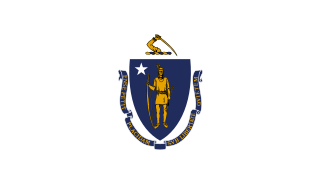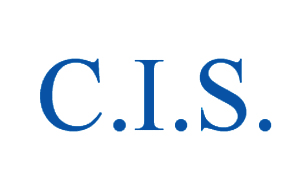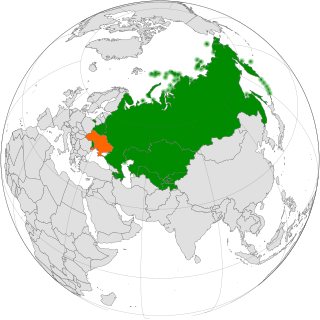A commonwealth is a traditional English term for a political community founded for the common good. The noun "commonwealth", meaning "public welfare, general good or advantage", dates from the 15th century. Originally a phrase, it comes from the old meaning of "wealth", which is "well-being", and is itself a loose translation of the Latin res publica. The term literally meant "common well-being". In the 17th century, the definition of "commonwealth" expanded from its original sense of "public welfare" or "commonweal" to mean "a state in which the supreme power is vested in the people; a republic or democratic state".

The Unified Team was the name used for the sports team of the former Soviet Union (except the Baltic states) at the 1992 Winter Olympics in Albertville and the 1992 Summer Olympics in Barcelona. The IOC country code was EUN, after the French name, Équipe unifiée. The Unified Team was sometimes informally called the CIS Team, although Georgia did not join the CIS until 1993.

The Commonwealth of Independent States (CIS) is a regional intergovernmental organization in Eurasia. It was formed following the dissolution of the Soviet Union in 1991, and is its legal successor. It covers an area of 20,368,759 km2 (7,864,422 sq mi) and has an estimated population of 239,796,010. The CIS encourages cooperation in economic, political, and military affairs and has certain powers relating to the coordination of trade, finance, lawmaking, and security, including cross-border crime prevention.

The Commonwealth of Massachusetts has been represented by official but limited-purpose flags since 1676, though until 1908 it had no state flag per se to represent its government. A variant of the white flag with blue seal was carried by each of the Massachusetts volunteer regiments during the American Civil War alongside the National Colors. An exception were the two "Irish regiments", each of which was permitted to carry an alternative green flag with a harp symbol.

The Belovezha Accords is the agreement declaring that the Union of Soviet Socialist Republics (USSR) had effectively ceased to exist and establishing the Commonwealth of Independent States (CIS) in its place as a successor entity. The documentation was signed at the state dacha near Viskuli in Belovezhskaya Pushcha, Belarus on 8 December 1991, by leaders of three of the four republics which had signed the 1922 Treaty on the Creation of the USSR:

The Commonwealth of Independent States Cup is a defunct annual regional association football tournament, recognized by FIFA.

The Russia national bandy team represents Russia in international bandy. There is a national team for men's competitions and a Russia women's national bandy team. This article deals chiefly with the men's national bandy team.

The Commonwealth of Independent States national football team was a transitional national team of the Football Federation of the Soviet Union in 1992. It was accepted that the team would represent the Commonwealth of Independent States that was formed as a loose union of former union republics.

Vyacheslav Vasylovych Zahorodnyuk is a Ukrainian former competitive figure skater. He represented the USSR until its dissolution and then represented Ukraine. He is the 1994 World bronze medalist, 1996 European champion, and 1989 World Junior champion.

Treaty on Free Trade Area is an international treaty on a free trade regime in goods signed by 8 post-Soviet states on 18 October 2011, at a meeting of the Commonwealth of Independent States (CIS) Council of Heads of Government in St. Petersburg and entered into force on 20 September 2012. It creates Free Trade Area among Russia, Ukraine, Belarus, Moldova, Armenia, Kyrgyzstan, Kazakhstan and Tajikistan. This Treaty and other agreements within the Commonwealth of Independent States do not regulate relations with third countries, the terms of the CIS FTA allow member states to enter into the FTA agreements with other countries, as well as to join/create custom unions.

The Alma-Ata Protocols were the founding declarations and principles of the Commonwealth of Independent States (CIS). The leaders of Russia, Ukraine, and Belarus had agreed to the Belovezha Accords on 8 December 1991, declaring the Soviet Union dissolved and forming the CIS. On 21 December 1991, Armenia, Azerbaijan, Belarus, Kazakhstan, Kyrgyzstan, Moldova, Russia, Tajikistan, Turkmenistan, Ukraine, and Uzbekistan agreed to the Alma-Ata Protocols, formally establishing the CIS. The latter agreement included the original three Belavezha signatories, as well as eight additional former Soviet republics. Georgia was the only former republic that did not participate while Lithuania, Latvia and Estonia refused to do so as according to their governments, the Baltic states were illegally incorporated into the USSR in 1940.

The independence of Moldova was officially recognized on 2 March 1992, when Moldova gained membership of the United Nations. The nation had declared its independence from the Soviet Union on 27 August 1991, and was a co-founder of the post-Soviet Commonwealth of Independent States. Moldova became fully independent from the Soviet Union that December, and joined the United Nations three months later.

The CIS national ice hockey team was an ephemeral national ice hockey team that represented the Commonwealth of Independent States. Essentially the former Soviet team under a different name, the CIS team existed in the few months between the dissolution of the Soviet Union and the formation of new ice hockey federations for the former Soviet states, now independent countries. Most notably, the team competed at the 1992 Winter Olympics as part of the Unified Team, winning the gold medal. However, the International Ice Hockey Federation would later attribute this gold medal to Russia as the successor state. The International Olympic Committee does not attribute that medal to Russia. After the Olympics, the CIS team ceased to exist and was replaced by the Russian team. In the 13 games the CIS played, they won 11 and lost 2.
The 1991–92 Soviet League season was the 46th and final season of the Soviet Championship League, the top level of ice hockey in the Soviet Union. This season was also known as the first and only one of the Ice Hockey Championship of the Commonwealth of Independent States (CIS), as the Soviet Union dissolved during the season, and the championship was continued by the Commonwealth of Independent States. 16 teams participated in the league, and Dynamo Moscow won the championship.
The Commonwealth of Independent States is a regional organisation formed of former Soviet states that competed at the Hopman Cup in 1992. It reached the quarterfinal stage of the tournament.

The Interparliamentary Assembly of Member Nations of the Commonwealth of Independent States is a parliamentary assembly for delegations from the national parliaments of the member countries of the Commonwealth of Independent States (CIS) established in 1992.

The copyright law of Moldova regulates the copyright laws of Moldova. The first official decree related to copyrights in the country was made on 25 November 1991, shortly after its independence on 27 August of the same year. On 25 May 1991, the State Agency on the Protection of Industrial Property (AGEPI) was created, making it the second copyright agency in the country together with the State Agency for Copyright (ADA). In 1993, Moldova signed an agreement on cooperation in the protection of copyright and the related rights between it and other countries, all members of the Commonwealth of Independent States (CIS), which only came into force in 1999. By that time, Moldova had already created its official copyright law: Law No. 293-XIII, from 1994 but applied since 1995.

Relations between Ukraine and the Commonwealth of Independent States (CIS) are multilateral international relations between a third state and a supranational organization.
The 1992 CIS Top League was a scheduled but eventually canceled season in the Soviet Top League, an attempt to preserve All-Union competitions. The competition was canceled following the joint letter from all five Muscovite clubs that expressed their disagreement with the competition arrangements.















